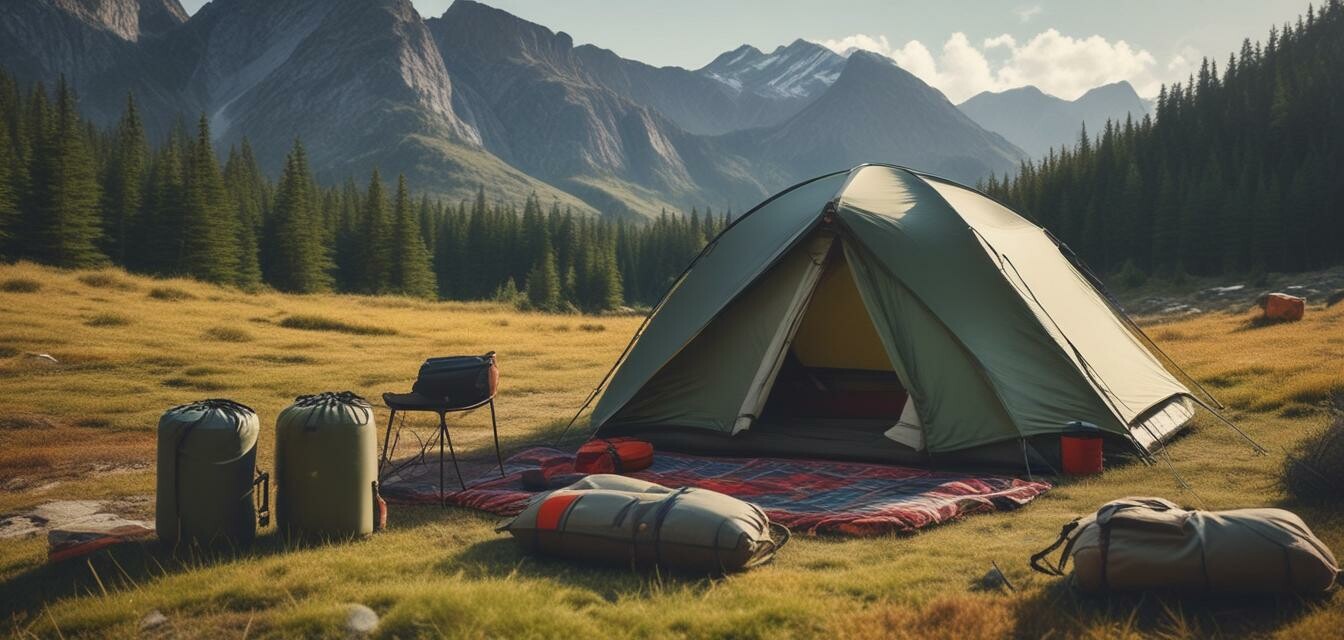
The Rise of Lightweight Camping Gear
Key Takeaways
- Lightweight camping gear is increasingly popular among beginners.
- It enhances the overall camping experience by reducing physical strain.
- Innovative materials and designs are driving the trend.
- Lightweight gear often comes with eco-friendly benefits.
- Investing in quality lightweight gear can improve comfort and mobility.
The camping gear market has seen a significant shift towards lighter, more compact equipment, and it’s not just seasoned campers who are taking notice. Beginning campers are discovering that lightweight camping gear can transform their outdoor adventures, making trips more enjoyable and less strenuous. But what’s fueling this rise? Let’s explore the benefits of lightweight camping gear and its growing popularity among those just starting out in the great outdoors.
Why Lightweight Camping Gear?
Lightweight camping gear offers multiple advantages that resonate strongly with beginners. Here are some key factors driving this trend:
- Ease of Transport: Lightweight gear significantly reduces the overall weight of your pack, making it easier to carry on hikes.
- Compact Storage: Many lightweight camping items can be packed down small, saving space in your vehicle or backpack.
- Simplified Setup: Lightweight tents and shelters often come with simplified designs that allow for quicker setup and takedown.
Technological Advances Transforming Camping Gear
Advancements in materials and manufacturing processes have been game-changers for the camping industry. Some notable developments include:
| Material | Features | Benefits |
|---|---|---|
| Dyneema | Ultra-lightweight, waterproof | Durability and reduced weight |
| Nylon Ripstop | Lightweight, tear-resistant | Compact and tough for outdoor use |
| Aluminum alloys | Super light and strong | Ideal for cooking and camping accessories |
Benefits of Lightweight Gear for Beginners
For those new to camping, investing in lightweight gear can greatly enhance the experience. Here are several benefits:
Pros
- Improves comfort by reducing strains from carrying heavy loads.
- Increases enjoyment by allowing for more spontaneous adventures.
- Promotes outdoor exploration due to the ease of transport.
Cons
- Can be more expensive than traditional gear.
- May sacrifice some durability in exchange for lighter materials.
- Requires careful handling to avoid damage.
Eco-Friendly Aspects of Lightweight Gear
Many manufacturers are embracing sustainable practices, making lightweight camping gear a more eco-friendly option. Here’s how:
- Use of recycled materials in production.
- Lightweight designs reduce fuel consumption during transportation.
- Long-lasting equipment minimizes waste over time.
FAQs about Lightweight Camping Gear
For beginners considering this transition, here are some frequently asked questions:
- What is considered lightweight camping gear?
Gear typically weighing less than 3-4 pounds per item is classified as lightweight.
- Is lightweight gear suitable for all camping conditions?
While lightweight gear is versatile, be sure to choose options that match your specific camping environment.
- Can I find affordable lightweight gear?
Yes, there are many budget-friendly options available, including those made from recycled materials.
Conclusion
The rise of lightweight camping gear is a testament to the evolving needs of today’s campers, especially beginners looking to maximize their enjoyment in the great outdoors. With advances in technology, a variety of benefits, and a commitment to eco-friendliness, lightweight gear is more than just a trend; it's a smart choice for anyone looking to enhance their camping experience. For more information on camping gear essentials, check out our guide on Backpacks & Carriers, or view our Camping Buying Guides for tailored equipment choices!
Stay Updated with Camping News
To keep abreast of the latest trends in the camping world, visit our Camping News and Trends page. We cover emerging products, eco-friendly innovations, and much more!